
Elephantine Island: The Jewel of Aswan
Nestled in the serene waters of the Nile, Elephantine Island is a must-visit for any traveler in Aswan. This captivating island offers a blend of ancient history, vibrant culture, and natural beauty. As you step onto the island, you'll be greeted by its lush palm groves and the gentle sound of the Nile lapping against the shore. Elephantine Island is home to the ancient Temple of Khnum, where visitors can explore ruins that date back to the Old Kingdom of Egypt. The island also features the Aswan Museum, which houses artifacts from various periods of Egyptian history, providing a comprehensive look at the region's past. Don't miss the traditional Nubian villages on the island, where you can experience the warm hospitality of the Nubian people and learn about their unique culture and traditions. The colorful houses and friendly locals make for a delightful visit. Whether you're exploring the ancient ruins, strolling through the villages, or simply soaking in the island's natural beauty, Elephantine Island offers a unique and enriching experience for tourists.
Local tips in Elephantine Island
- Visit early in the morning to avoid the midday heat and enjoy a quieter experience.
- Carry cash, as some local vendors and attractions may not accept card payments.
- Wear comfortable shoes, as the island is best explored on foot.
- Take a guided tour to fully appreciate the historical significance of the island's ruins.
- Don't forget your camera to capture the picturesque views and vibrant Nubian villages.
Elephantine Island: The Jewel of Aswan
Nestled in the serene waters of the Nile, Elephantine Island is a must-visit for any traveler in Aswan. This captivating island offers a blend of ancient history, vibrant culture, and natural beauty. As you step onto the island, you'll be greeted by its lush palm groves and the gentle sound of the Nile lapping against the shore. Elephantine Island is home to the ancient Temple of Khnum, where visitors can explore ruins that date back to the Old Kingdom of Egypt. The island also features the Aswan Museum, which houses artifacts from various periods of Egyptian history, providing a comprehensive look at the region's past. Don't miss the traditional Nubian villages on the island, where you can experience the warm hospitality of the Nubian people and learn about their unique culture and traditions. The colorful houses and friendly locals make for a delightful visit. Whether you're exploring the ancient ruins, strolling through the villages, or simply soaking in the island's natural beauty, Elephantine Island offers a unique and enriching experience for tourists.
Iconic landmarks you can’t miss
Animalia
Discover Nubian heritage and natural wonders at Animalia Museum on Elephantine Island, Aswan. A unique cultural experience!
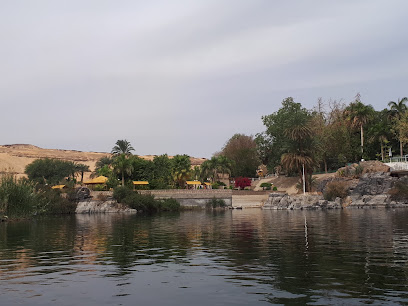
Elephantine Island Pyramid
Experience the historical splendor and serene beauty of Elephantine Island Pyramid, a must-visit landmark in Aswan's rich cultural landscape.
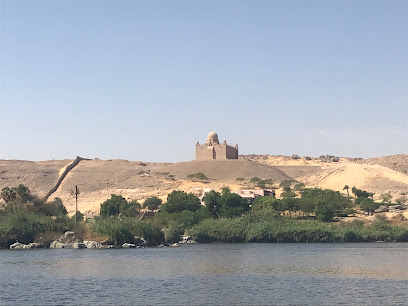
Dome of Abu Al-Hawa
Discover ancient Egyptian tombs and breathtaking panoramic views of Aswan from the historic Dome of Abu Al-Hawa.
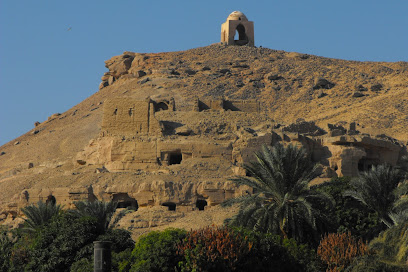
Temple of Khnum
Explore the Temple of Khnum in Esna, an ancient Egyptian site dedicated to the ram-headed god of creation, with well-preserved Ptolemaic and Roman art.
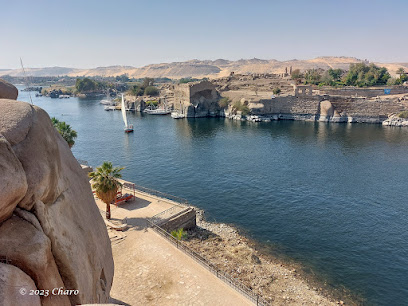
Birds watching House - Mövenpick Resort Aswan
Discover Aswan's avian treasures at Mövenpick Resort's Birds Watching House, a serene nature escape on Elephantine Island.

Plants Island Aswan
Explore the lush gardens and rich history of Plants Island, a serene escape in Aswan that showcases the natural beauty and cultural heritage of Egypt.
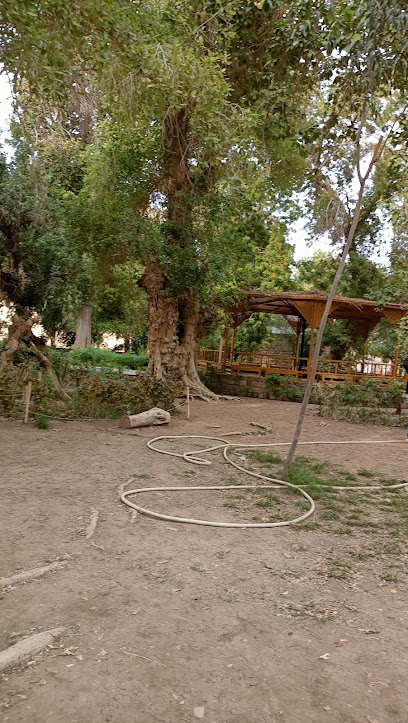
جزيرة ألفنتين اسوان
Explore ancient temples, Nubian villages, and stunning Nile views on Aswan's captivating Elephantine Island. A blend of history, culture, and tranquility.
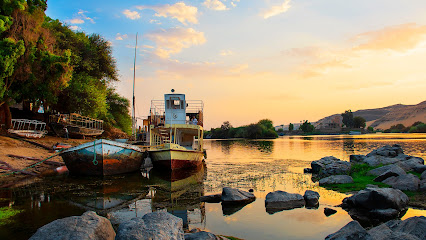
Isla Elefantina
Explore ancient temples, Nubian culture, and stunning Nile views on Aswan's captivating Elephantine Island.
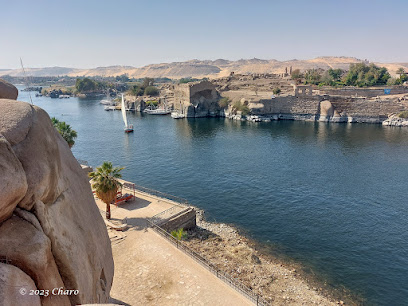
Viewing platform
Experience breathtaking views of the Nile and desert from Aswan's stunning Viewing Platform, a must-visit for every traveler to Egypt.
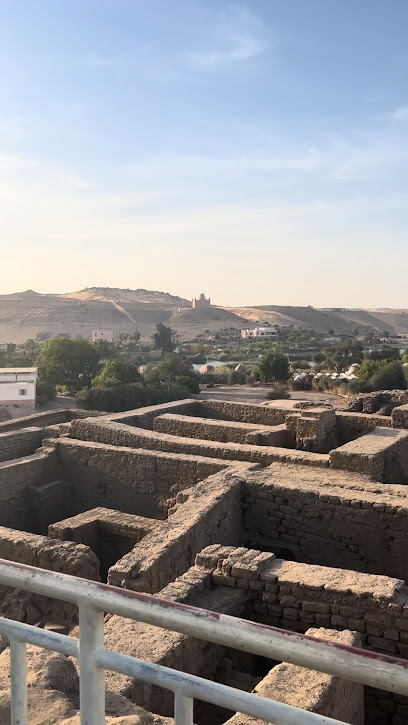
Stela of King Harsiotef
Explore the Stela of King Harsiotef in Aswan, a remarkable monument reflecting ancient Egyptian and Kushite history and artistry.
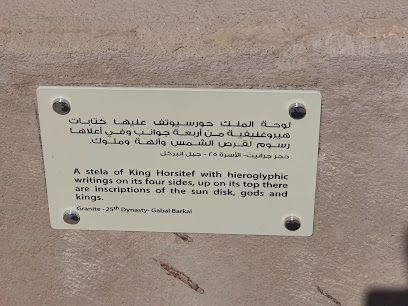
Unmissable attractions to see
Abu Simbel Temples
Experience the breathtaking Abu Simbel Temples, an architectural marvel and UNESCO World Heritage site, showcasing the grandeur of ancient Egypt.
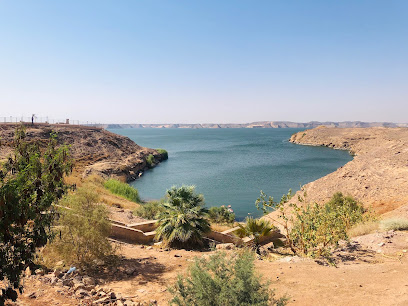
Kom Ombo Temple
Explore the ancient dual sanctuaries of Kom Ombo Temple, where history, mythology, and stunning Nile views come together in a captivating Egyptian experience.
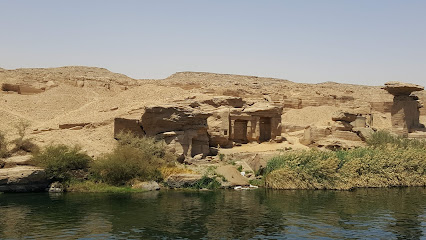
Nile Museum
Explore the rich history and cultural significance of the Nile River at the captivating Nile Museum in Aswan, Egypt.
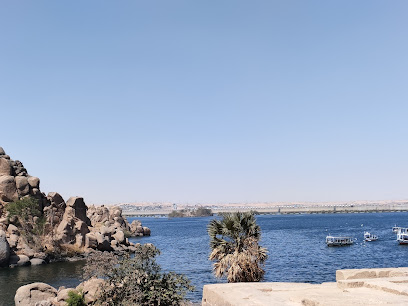
Temple of Khnum
Discover the Temple of Khnum on Elephantine Island in Aswan, a historical landmark that unveils the wonders of ancient Egyptian civilization.
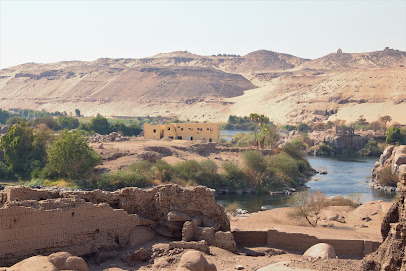
Essential places to dine
Bob Marley Moonlight terrace restaurant cafe
Discover the best barbecue at Bob Marley Moonlight Terrace in Aswan—where flavorful dishes meet stunning views.
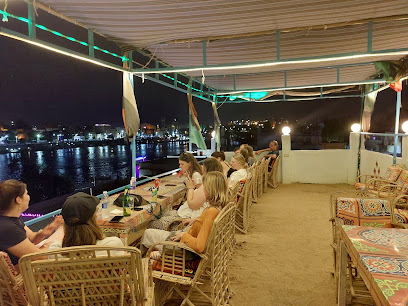
King Jamaica restaurant & Cafe and breakfast ( Ayman jamaica ) ايمن جاميكا
Experience authentic Jamaican cuisine and vegan delights at King Jamaica Restaurant & Cafe on Elephantine Island in Aswan.
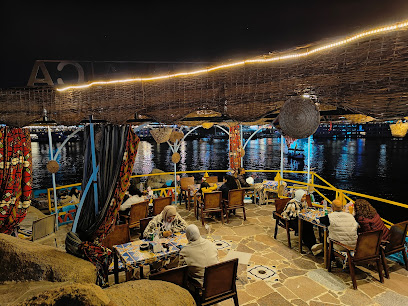
Nubian Dreams Restaurant & Cafe
Discover authentic Nubian cuisine at Nubian Dreams Restaurant & Cafe in Aswan – a delightful blend of flavors and cultural heritage.
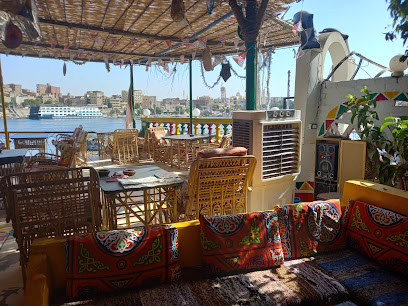
Ibiza Free Beach & Restaurants & Cafe
Experience culinary bliss at Ibiza Free Beach & Restaurants & Cafe with exquisite dishes and breathtaking ocean views in a vibrant setting.
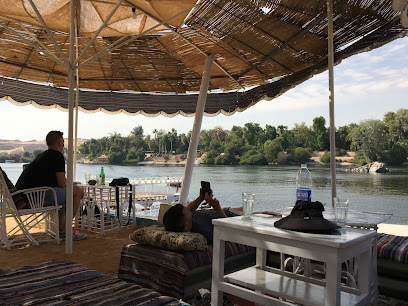
Salah El Din Restaurant
Experience exquisite Japanese cuisine with stunning Nile views at Salah El Din Restaurant in Aswan.
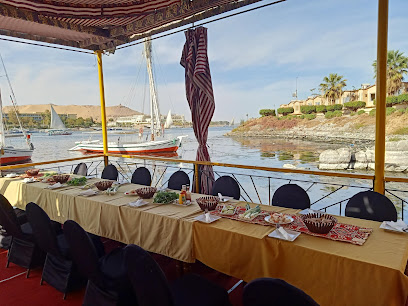
Panorama Restaurant & Bar
Experience breathtaking Nile views and exquisite cuisine at Panorama Restaurant & Bar on Elephantine Island in Aswan.
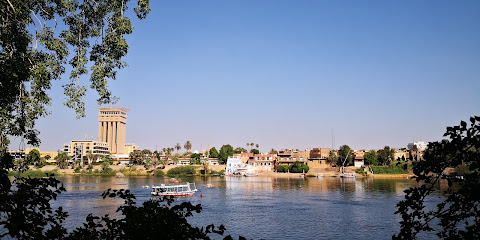
Mezze Restaurant
Experience authentic Egyptian cuisine at Mezze Restaurant on Elephantine Island in Aswan – where tradition meets taste amidst breathtaking Nile views.
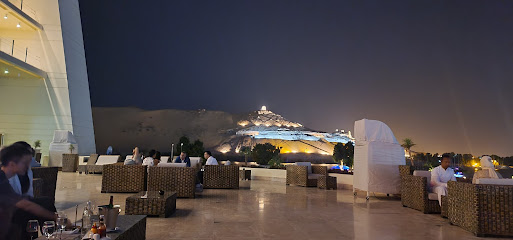
Strawberry Restaurant
Experience authentic Egyptian flavors at Strawberry Restaurant on Elephantine Island—where culinary tradition meets stunning Nile views.
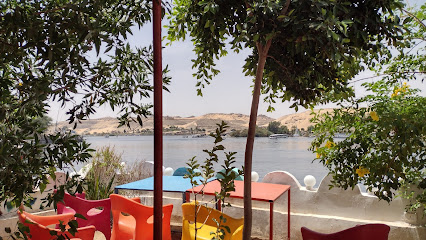
Orangerie Restaurant
Experience exquisite dining at Orangerie Restaurant on Elephantine Island with breathtaking Nile views and a diverse buffet selection.
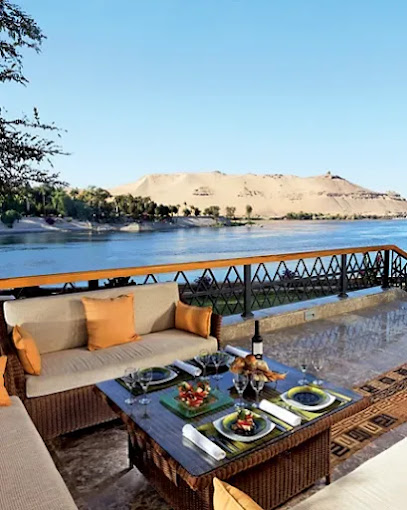
Elephantine Restaurant
Experience authentic Egyptian cuisine with stunning Nile views at Elephantine Restaurant on Elephantine Island.
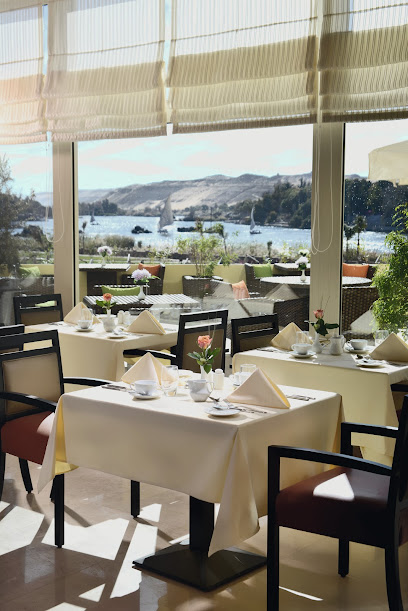
Markets, malls and hidden boutiques
Egypt Duty Free Shops
Discover luxury shopping at Egypt Duty Free Shops in Aswan, where unique souvenirs and unbeatable prices await along the scenic Nile.
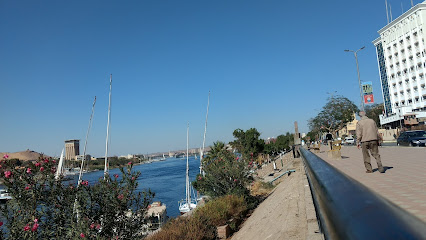
Zain Grocery Shop - محل وبقالة الزّين
Discover Zain Grocery Shop on Elephantine Island, your local grocery haven for authentic Egyptian flavors and essential supplies.
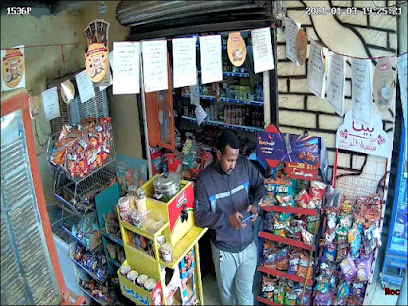
Al.Agamy Bazaar
Experience the charm of Al.Agamy Bazaar in Aswan, a vibrant marketplace filled with unique gifts, local crafts, and a taste of Egyptian culture.
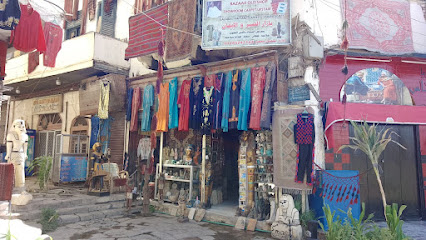
HANAFI BAZAAR (LONELY PLANET)
Explore Hanafi Bazaar in Aswan for unique gifts, local crafts, and a glimpse into Egyptian culture along the breathtaking Nile.
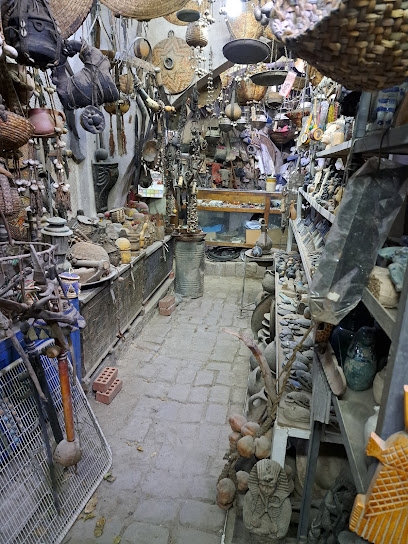
BaNoTa
Explore BaNoTa, Aswan's charming gift shop offering unique local crafts and souvenirs that capture the spirit of Egypt.
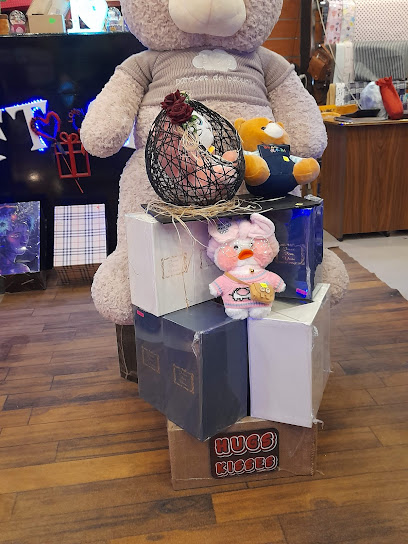
Gamil Bazar
Explore Gamil Bazar in Aswan for authentic Egyptian crafts, unique souvenirs, and a vibrant shopping experience that reflects the local culture.
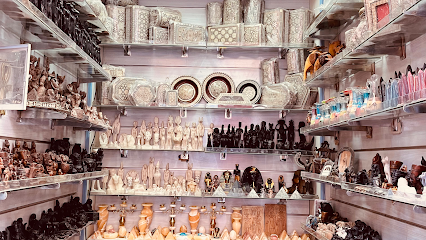
Ahmed abu yosef bazzar
Explore Ahmed Abu Yosef Bazaar in Aswan for unique Egyptian crafts, local art, and unforgettable souvenirs that celebrate the culture of Egypt.
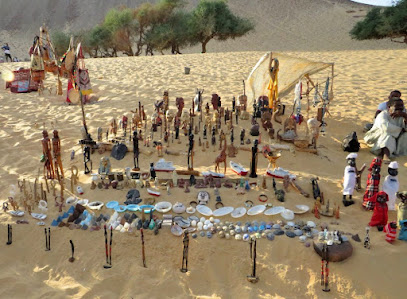
Patience and Faith Bazaar
Explore the rich heritage and exquisite craftsmanship of Egypt at Patience and Faith Bazaar, where every antique tells a story.
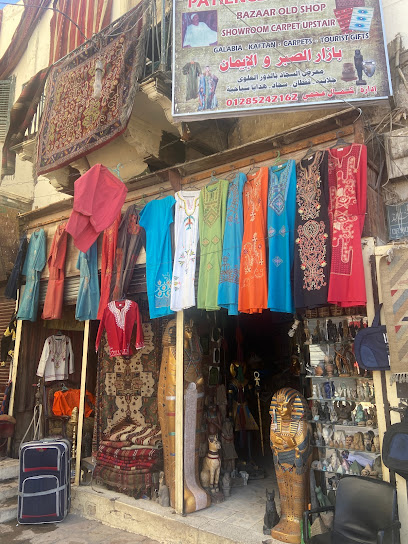
Aswan Collectibles
Explore Aswan Collectibles for unique handcrafted souvenirs and local art that capture the essence of Egypt's rich culture and history.
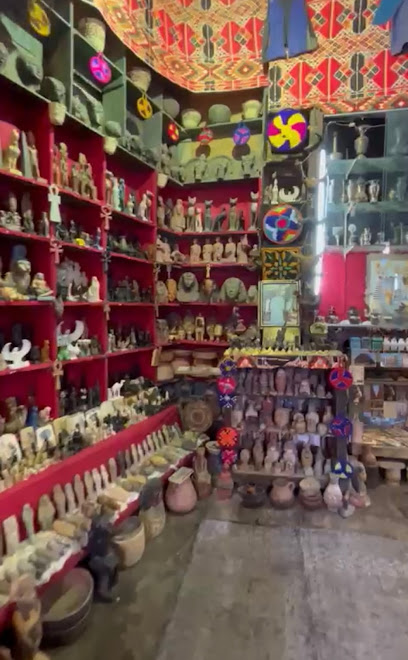
shop DR . RAGAB PAPYRUS
Explore the ancient art of papyrus making at Shop DR. RAGAB PAPYRUS in Aswan, your gateway to authentic Egyptian souvenirs.

Essential bars & hidden hideouts
مطعم وكافيتيريا ايمى درينكز
Experience the charm of Eimy Drinks, a vibrant bar on the Nile Corniche in Aswan, perfect for refreshing beverages and breathtaking views.
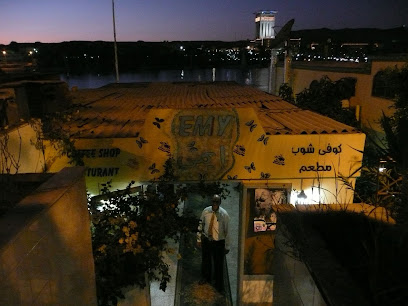
Emy Bar
Experience the vibrant nightlife at Emy Bar in Aswan, where refreshing drinks and local culture come together for an unforgettable evening.
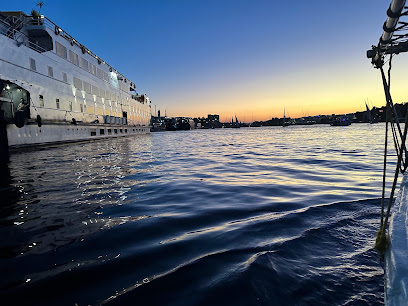
The Lounge Bar
The Lounge Bar: A cocktail oasis on Elephantine Island, offering stunning views and exquisite drinks in Aswan, Egypt.
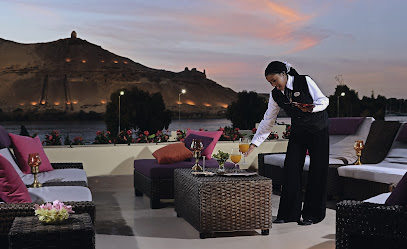
Al Qahwa
Experience the tranquility of Al Qahwa on Elephantine Island, where exquisite flavors and breathtaking Nile views await every visitor.
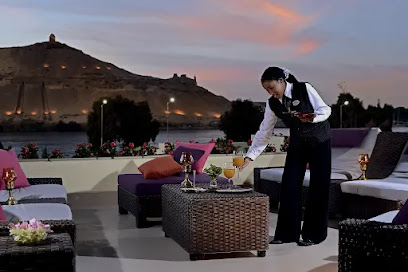
Pool Bar
Relax and unwind at the Pool Bar on Elephantine Island, where stunning Nile views and refreshing drinks create the perfect oasis in Aswan.

Panda bar
Experience the heart of Aswan at Panda Bar, where local flavors and a friendly atmosphere create unforgettable moments.
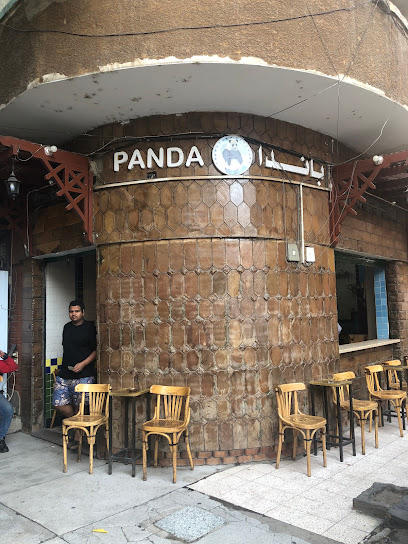
نيو ابو سمبل استلا
Discover the vibrant New Abu Simbel Bar in Aswan, where local culture meets refreshing drinks in a lively atmosphere.

رضا مصطفى أحمد
Explore the lively bar scene at رضا مصطفى أحمد, a hotspot in Aswan for travelers seeking drinks and local culture.

فهمى
Discover the vibrant atmosphere of فهمى, a lively bar in Aswan, where local culture meets refreshing drinks.

ببب
Discover Bebeb in Aswan - a vibrant bar offering a unique blend of local flavors and lively atmosphere for an unforgettable nightlife experience.

Local Phrases
-
- Helloمرحبا
[Marhaba] - Goodbyeوداعا
[Wada'an] - Yesنعم
[Naam] - Noلا
[La] - Please/You're welcomeمن فضلك
[Min fadlak] - Thank youشكرا
[Shukran] - Excuse me/Sorryعذرا
[A'udhran] - How are you?كيف حالك؟
[Kayfa halak?] - Fine. And you?بخير. وأنت؟
[Bikhair. Wa anta?] - Do you speak English?هل تتحدث الإنجليزية؟
[Hal tatahadath al'inglizia?] - I don't understandأنا لا أفهم
[Ana la afham]
- Helloمرحبا
-
- I'd like to see the menu, pleaseأريد رؤية القائمة، من فضلك
[Areed ru'ya alqaima, min fadlak] - I don't eat meatأنا لا آكل اللحوم
[Ana la aakol allahom] - Cheers!في صحتك!
[Fi sahtak!] - I would like to pay, pleaseأود أن أدفع، من فضلك
[Ored an adfa', min fadlak]
- I'd like to see the menu, pleaseأريد رؤية القائمة، من فضلك
-
- Help!النجدة!
[Alnajda!] - Go away!انصرف!
[Insraf!] - Call the Police!اتصل بالشرطة!
[Itsal bialshurta!] - Call a doctor!اتصل بالطبيب!
[Itsal bialtabib!] - I'm lostلقد ضللت الطريق
[Liqad dalalt altariq] - I'm illأنا مريض
[Ana mareed]
- Help!النجدة!
-
- I'd like to buy...أريد شراء...
[Areed shira...] - I'm just lookingأنا فقط أتطلع
[Ana faqat atatallaa] - How much is it?كم هذا الثمن؟
[Kam hatha althaman?] - That's too expensiveهذا غالي جدا
[Hatha ghali jiddan] - Can you lower the price?هل يمكنك خفض السعر؟
[Hal yumkinuk khifd alsar?]
- I'd like to buy...أريد شراء...
-
- What time is it?كم الساعة؟
[Kam alssaa'a?] - It's one o'clockالساعة الواحدة
[Alssaa'a alwaahida] - Half past (10)النصف بعد (10)
[Alnasef ba'd (10)] - Morningصباح
[Sabah] - Afternoonبعد الظهر
[Ba'd althuhr] - Eveningمساء
[Masaa] - Yesterdayأمس
[Ams] - Todayاليوم
[Alyawm] - Tomorrowغدا
[Ghadan] - 1واحد
[Wahid] - 2اثنان
[Ithnan] - 3ثلاثة
[Thalatha] - 4أربعة
[Arba'a] - 5خمسة
[Khamsa] - 6ستة
[Sitta] - 7سبعة
[Sab'a] - 8ثمانية
[Thamania] - 9تسعة
[Tasia] - 10عشرة
[Ashara]
- What time is it?كم الساعة؟
-
- Where's a/the...?أين ...؟
[Ayna ...?] - What's the address?ما هو العنوان؟
[Ma huwa al'anaan?] - Can you show me (on the map)?هل يمكنك أن تريني (على الخريطة)؟
[Hal yumkinuk an tarini (ala alkhareeta)?] - When's the next (bus)?متى يكون الحافلة التالية؟
[Mata yakun alhafila altaliya?] - A ticket (to ....)تذكرة (إلى ....)
[Tazkira (ila ....)]
- Where's a/the...?أين ...؟
History of Elephantine Island
-
Elephantine Island has been inhabited since prehistoric times, serving as a crucial trade hub due to its strategic location at the southern border of ancient Egypt. The island was significant in facilitating trade routes between Egypt and Nubia, allowing for the exchange of goods, culture, and ideas. Its proximity to the Nile River made it an ideal port for merchants and travelers.
-
During the Pharaonic era, Elephantine Island was home to the Temple of Khnum, dedicated to the ram-headed god of creation and water. The temple complex, which dates back to the Old Kingdom, was a significant religious site for the ancient Egyptians. Rituals and offerings at the temple played a vital role in local spirituality, while the island itself became a focal point for worshippers and pilgrims.
-
Elephantine Island is notable for its ancient Jewish community, which existed from the 5th century BCE to the 1st century CE. Archaeological discoveries, including papyrus documents, reveal that this community maintained its own temple dedicated to Yahweh and engaged in trade while coexisting with the local Egyptian population. Their presence highlights the island's role as a melting pot of cultures and religions.
-
With the arrival of the Greeks and later the Romans, Elephantine Island continued to thrive as a center of commerce and culture. The construction of new temples and structures during this period reflects the blending of local Egyptian traditions with Hellenistic influences. The island's strategic significance was further emphasized as it served as a military outpost and administrative center.
-
In the late 19th and early 20th centuries, archaeological excavations on Elephantine Island uncovered extensive ruins, including the remnants of temples, houses, and a significant number of papyrus texts. These discoveries have provided invaluable insights into the island's diverse history and its role in the broader context of ancient Egyptian civilization, contributing to our understanding of trade, religion, and daily life in antiquity.
Elephantine Island Essentials
-
Elephantine Island is accessible from Aswan city center via a short felucca ride across the Nile River. Feluccas are traditional wooden sailing boats that can be hired from the banks of the Nile, and the ride typically takes about 10-15 minutes. You can also take a motorboat from the Aswan Corniche, which offers a quick and scenic option. For those coming from other neighborhoods in Aswan, local taxis can take you to the nearest felucca station.
-
Elephantine Island is small and best explored on foot. Many of the island's attractions, such as the ruins and the botanical garden, are within walking distance of each other. There are no public transportation options on the island, but bicycles can be rented from local shops for a leisurely ride around the island. Some hotels may also offer guided walking tours.
-
Elephantine Island is generally considered safe for tourists, but standard precautions should be taken. Avoid walking alone at night and stay aware of your surroundings, especially near the riverbanks. While there are no specific high-crime areas targeting tourists on the island, petty theft can occur, so keep your belongings secure and avoid displaying valuables.
-
In case of emergency, dial local emergency services or seek assistance from your hotel or nearby residents. The nearest hospital is in Aswan city, and local pharmacies can assist with minor health issues. It is advisable to keep a copy of your travel insurance details handy and know the location of the nearest medical facility.
-
Fashion: Do wear lightweight, modest clothing due to the warm climate and cultural considerations. Avoid revealing outfits, especially when visiting temples. Religion: Do respect local customs and traditions. When visiting the Temple of Khnum, be quiet and respectful. Public Transport: Do use feluccas or motorboats to travel to and from the island. Don't litter or make excessive noise in public spaces. Greetings: Do greet locals with a friendly smile and a simple 'Salam' (peace). Eating & Drinking: Do try local dishes at island restaurants. Don't drink tap water; always opt for bottled water.
-
To experience Elephantine Island like a local, visit the Nubian village on the island to interact with residents and learn about their culture. Try to participate in a traditional meal if invited, as hospitality is highly valued. Take a leisurely stroll through the botanical garden, which offers a unique collection of plants native to the region. Don’t miss the chance to watch the sunset over the Nile; it's a breathtaking sight and a favorite among locals.
Nearby Cities to Elephantine Island
-
Things To Do in Luxor
-
Things To Do in Marsa Alam
-
Things To Do in Sohag
-
Things To Do in Hurghada
-
Things To Do in El Gouna
-
Things To Do in Asyut
-
Things To Do in Sharm El Sheikh
-
Things To Do in Minya
-
Things To Do in Dahab
-
Things To Do in Yanbu
-
Things To Do in Al Ula
-
Things To Do in Beni Suef
-
Things To Do in Tabuk
-
Things To Do in Aqaba
-
Things To Do in Eilat











